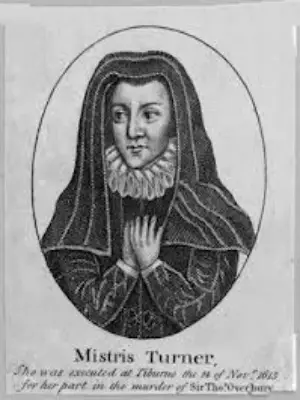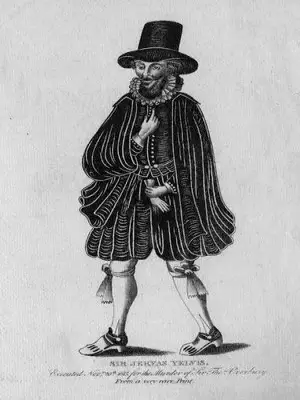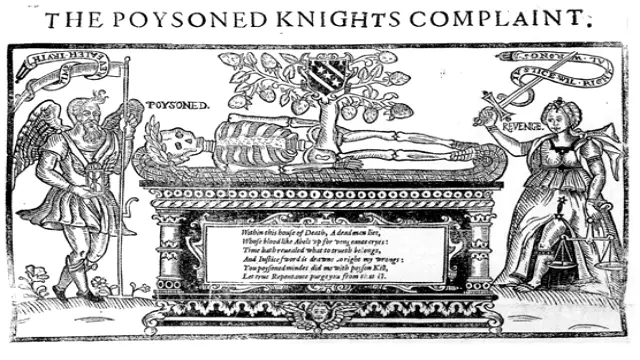The story of Thomas Overbury’s murder is one of the most shocking scandals of 17th-century England. It involves a web of betrayal, poison, and political intrigue, centered around Frances Howard, a beautiful and vengeful noblewoman, and her rise to power at the court of King James I. This tale of ambition and cruelty reveals the dark side of royal favoritism and the lengths to which people would go to secure their place in history.
Frances Howard’s Vengeful Plan
Frances Howard was determined to eliminate Thomas Overbury, who stood in the way of her marriage to Robert Carr, the King’s favorite. Overbury’s opposition to their union made him a target. Frances, with the help of her great-uncle Henry Howard, Earl of Northampton, orchestrated a sinister plot to remove him permanently.

The first step was to replace Sir William Wade, the honest Lieutenant of the Tower of London, with Sir Gervase Helwys, a man loyal to the Howard family. Next, the gaoler was replaced by Richard Weston, a man known for his familiarity with drugs and poisons. Within days of his appointment, Weston began poisoning Overbury’s food with rosaker (arsenic disulphide). Over the next three months, Overbury was slowly and painfully poisoned.
The Role of Anne Turner
Frances Howard’s confidante, Anne Turner, played a crucial role in the plot. Turner was a widow with a dubious reputation. She owned brothels, supplied drugs and aphrodisiacs to the aristocracy, and was known for her knowledge of poisons, learned from her late husband, a quack doctor. Turner also had a hand in the fashion of the time, supplying saffron-colored starch for dyeing lace and ruffs.

Turner worked with James Franklin, a notorious figure who was said to have poisoned his own wife. Together, they supplied Frances with the poisons needed to kill Overbury. Despite their efforts, Overbury clung to life, enduring horrific symptoms, including bloody stools, vomiting, and sores. Frances grew impatient, demanding that Weston finish the job.
The Final Act
On September 14, 1613, Weston bribed an apprentice named William to administer a lethal dose of mercuric chloride to Overbury through a clyster (enema). Overbury died the next morning. A verdict of death by natural causes was hastily declared, and his body was buried in the Tower church.
With Overbury out of the way, Frances’s marriage to the Earl of Essex was annulled, and she married Robert Carr on December 26, 1613. The King himself blessed the union, and the couple seemed untouchable. Carr was elevated to the Earl of Somerset and given high-ranking positions, but their triumph was short-lived.
The Scandal Unravels
Two years later, whispers of foul play began to circulate. Sir Gervase Helwys, hoping to clear his name, confessed to Sir Ralph Winwood, the Secretary of State, about the rumors of Overbury’s poisoning. Around the same time, an apothecary’s apprentice named William Reeve made a deathbed confession, revealing his role in administering the fatal dose.

King James, who had grown tired of Carr and now favored George Villiers, ordered an investigation. Carr and Frances were arrested, and a trial ensued. Weston, Turner, Franklin, and Helwys were the first to face justice. All were found guilty and executed. Weston’s final words on the gallows were a plea not to let the “great fish” escape while the “little fish” paid the price.
The Fall of the Somersets
Frances Howard and Robert Carr were tried separately. Frances pleaded guilty and was sentenced to death, but her pregnancy delayed her execution. Carr initially refused to attend his trial, threatening to reveal secrets about his relationship with the King. He eventually relented and was also found guilty.
Both were spared execution due to the King’s mercy but were stripped of their titles and imprisoned in the Tower of London. Frances reportedly refused to be housed in the cell where Overbury had died, fearing his vengeful ghost. They were released in 1622, but their lives were ruined.
The Legacy of the Scandal
The Overbury scandal exposed the corruption and intrigue of James I’s court. It also left a lasting mark on Frances and Carr’s daughter, Anne, who grew up unaware of her parents’ crimes. When she discovered the truth later in life, it reportedly broke her heart.
This tale of poison, betrayal, and political maneuvering remains one of history’s most gripping stories. It serves as a reminder of the dangers of unchecked ambition and the high price of power.

